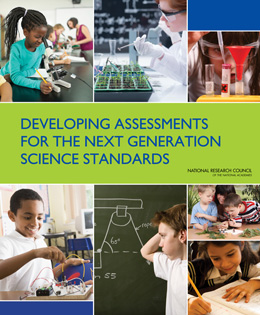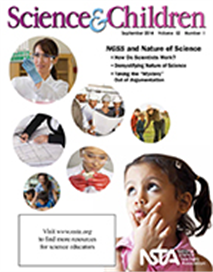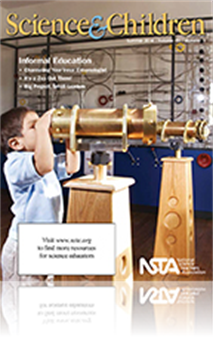All Science and Engineering Practices resources
eBook
Argument-Driven Inquiry in Chemistry: Lab Investigations for Grades 9-12 (e-book)
Transform your chemistry labs with this guide to argument-driven inquiry. Designed to be much more authentic for instruction than traditional laboratory activities, the investigations in this book give high school students the opportunity to work the...
NSTA Press Book
The NSTA Quick-Reference Guide to the NGSS, High School
Since the release of the first draft of the Next Generation Science Standards (NGSS), NSTA has been at the forefront in promoting the standards and helping science educators become familiar with and learn to navigate this exciting but complex documen...
NSTA Press Book
The NSTA Quick-Reference Guide to the NGSS, K-12
Since the release of the first draft of the Next Generation Science Standards (NGSS), NSTA has been at the forefront in promoting the standards and helping science educators become familiar with and learn to navigate this exciting but complex documen...
NSTA Press Book
The NSTA Quick-Reference Guide to the NGSS, Middle School
Since the release of the first draft of the Next Generation Science Standards (NGSS), NSTA has been at the forefront in promoting the standards and helping science educators become familiar with and learn to navigate this exciting but complex documen...
NSTA Press Book
The NSTA Quick-Reference Guide to the NGSS, Elementary School
Since the release of the first draft of the Next Generation Science Standards (NGSS), NSTA has been at the forefront in promoting the standards and helping science educators become familiar with and learn to navigate this exciting but complex documen...
Acquired Book
Developing Assessments for the Next Generation Science Standards
Assessments, understood as tools for tracking what and how well students have learned, play a critical role in the classroom.Developing Assessments for the Next Generation Science Standardsdevelops an approach to science assessment to meet the vision...
Journal Article
Engineering Encounters: The Tightrope Challenge
When confronted with a robotics engineering task, fourth-grade students develop growth mindsets....
Journal Article
The Early Years: Inviting Parents to School
This column discusses resources and science topics related to students in grades preK to 2. This month’s issue discusses ways to help parents get involved in preschool science end engineering programs....
NSTA Press Book
Introducing Teachers and Administrators to the NGSS: A Professional Development Facilitator's Guide
REVERE Award Finalist, PreK-12 Learning Group, Association of American Publishers!If you’re charged with helping educators achieve the vision of the new science standards, this is the professional development resource you need. This book is chock-f...
By Eric Brunsell, Deb M. Kneser, Kevin J. Niemi






